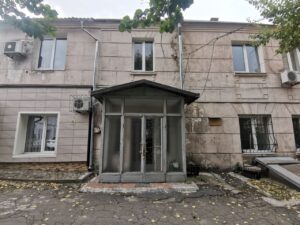
The US Department of Agriculture (USDA) has reduced its forecast for wheat exports from Ukraine in the 2025-2026 marketing year (MY) from 14.5 million tonnes to 14 million tonnes (-0.5 million tonnes or 3.4%) given the increase in domestic consumption from 7.6 million tonnes to 8.1 million tonnes (+0.5 million tonnes or 6.6%), the forecast for corn remained unchanged.
The global forecast for wheat for 2025/26 calls for increased supplies, consumption, trade, and ending stocks. (…) Global consumption increased by 0.9 million tonnes to 823.9 million tonnes, mainly due to increased use in Russia, Ukraine, and Morocco, according to the USDA’s December report.
The US Department of Agriculture has not changed its estimate of Ukraine’s wheat harvest to 23 million tonnes, with exports at 14 million tonnes (-0.5 million tonnes) and ending stocks at 1.93 million tonnes. At the same time, it is noted that domestic consumption will increase to 8.1 million tonnes (+0.5 million tonnes or 6.6%).
USDA analysts left unchanged their forecast for corn harvest in Ukraine in 2025/26 MY — 29 million tonnes, exports — 23 million tonnes, ending stocks — 0.85 million tonnes.
The USDA has increased its forecast for global wheat production in 2025/26 MY to 842.17 million tonnes (+4.36 million tonnes), global exports to 219.76 million tonnes (+1.05 million tonnes), and ending stocks — 278.25 million tonnes (+3.38 million tonnes).
The USDA has raised its forecast for global corn production in 2025/26 MY to 1,296.01 million tonnes (+13 million tonnes), exports to 205.1 million tonnes (+0.01 million tonnes), and ending stocks to 290.91 million tonnes (+11.76 million tonnes).

The State Property Fund (SPF) of Ukraine will put up for privatisation the single property complex of the state-owned enterprise Ukrkolorprom (Dnipro) with a total area of 1,370.4 square metres.
According to the Fund, the auction will be held in the Prozorro.Prozori electronic system.
The starting price is UAH 42,697 excluding VAT.
The auction will take place on 22 December, and the deadline for submitting bids is 20:00 on 21 January.
The property is located in the central district of Dnipro. It is conveniently located near transport links, educational institutions, shops, parks, etc. It consists of: in Dnipro – an administrative building (with a vestibule and basement) of 305.2 square metres and a non-residential building, a security building and a fence – 288.3 square metres; in Zhovti Vody – production premises, a fence, paving of 776.9 square metres.
As of 30 September 2025, the privatisation object or its parts are not leased.
According to the State Property Fund, the acquisition of this object is an opportunity to obtain a large amount of commercial real estate with a favourable location and potential for creating a profitable office, logistics or production hub.

Ukraine is forming a National Reserve of Mobile and Modular Power Equipment for rapid recovery after attacks, according to Deputy Prime Minister for the Recovery of Ukraine – Minister of Community and Territorial Development Oleksiy Kuleba.
‘We are forming a national reserve of mobile and modular energy equipment. Such solutions allow for the rapid restoration of critical infrastructure after attacks. We communicated our priority needs to the Norwegian delegation during the meeting,’ he wrote on Telegram.
Kuleba said that he discussed Ukraine’s energy security with Norwegian Foreign Minister Espen Barth Eide, in particular the construction of physical protection for energy facilities.
According to him, on Monday, Norway announced the allocation of about $400 million for Ukraine’s urgent needs this winter.
The minister also stressed that heating plants remain one of the main targets of Russian attacks.
‘During the last massive shelling alone, the enemy fired more than 20 missiles at them. Russia is trying to provoke a large-scale humanitarian crisis – we are doing everything to prevent this,’ he said.
The parties also discussed housing reconstruction.
‘The Nansen programme is key for us: in 2025, its volume reached 85 billion Norwegian kroner, which is three times more than the initial plans,’ Kuleba emphasised.
According to him, the extension of the programme until 2030 with total funding of 205 billion kroner is a clear sign of confidence in Ukraine.
‘I also expressed my gratitude for the support of the effective HOPE, RELINC and Re-Power programmes. The partnership with NEFCO is equally important – EUR 16 million in investments in energy efficiency projects,’ the minister noted.
As reported, Ukrainian President Volodymyr Zelensky met with Norwegian Foreign Minister Espen Barth Eide and discussed with him the energy situation in Ukraine, as well as the prospects for joint arms production. He thanked Norway for today’s decision to allocate a $400 million aid package to Ukraine and for its assistance since the beginning of Russia’s full-scale aggression.

A number of suburban trains in Ukraine are being delayed due to the security situation and voltage fluctuations, according to Ukrzaliznytsia.
“For security reasons, the departure of a number of suburban trains in the Korosten direction is being delayed. In particular, the departure of trains No. 6610 Korosten – Borshchahivka and No. 6606 Malyn – Kyiv is delayed indefinitely. As soon as the situation allows, we will proceed,” Ukrzaliznytsia said in a statement on its Telegram channel on Tuesday.
Regional train No. 886/885 Slavutych – Kyiv-Volynsky is delayed by 1 hour and 20 minutes. Train No. 6603 Sviatoshyn – Teterev is departing from Irpin station with a delay of 53 minutes.
In the Kharkiv region, trains on the Merefa-Kharkiv section in the direction of Kharkiv are delayed due to voltage fluctuations in the network.
Given the security situation today, 13 January, some suburban trains in the Zhytomyr region will not be running temporarily. These are: No. 6450 Korosten – Ovruch and No. 6453 Ovruch – Korosten.

The ATB, Novus, and Aurora retail chains in Kyiv are continuing to operate despite restrictions on heat and electricity, but there may be changes to their schedules and temporary closures, retailers told the Interfax-Ukraine news agency.
“Aurora stores are operating as usual. Information circulating on social media about the mass closure of Aurora stores is not true,” the chain’s press service said.
However, individual outlets may be temporarily closed in the event of generator and other power source failures, the retailer added.
According to the press service of the Novus chain, information about the mass closure of supermarkets is not true.
“The chain continues to operate, but due to power outages, some stores may temporarily operate with restrictions or change their schedule. We ask customers to check the current status of a particular store in advance at: https://novus.ua/robotamagazyniv/ or call the hotline at 0 800 601 729,” Novus explained.
In addition, all ATB stores in Kyiv and the surrounding region are operating as usual, according to a statement posted on Facebook by the company’s press service.
“In rare cases of technical or logistical difficulties, the company responds promptly and takes the necessary measures to resolve them,” the statement said.

TasteAtlas’s list of the 100 Best Rated Pastries in the World mentions the traditional Ukrainian pastry verhuny (verguny).
According to TasteAtlas, the top ten include:
1. Trigona panoramatos (Greece)
2. Pastel de Belém (Portugal)
3. Pastel de nata (Portugal)
4. Antakya künefesi (Turkey)
5. Empanadas Tucumanas (Argentina)
6. Fıstıklı sarma (Turkey)
7. Gaziantep baklavası (Turkey)
8. Pazarske mantije (Serbia)
9. Bougatsa (Greece)
10. Sirnica (Bosnia and Herzegovina)
TasteAtlas emphasizes that the rating is based on user reviews and applies filtering for “real” votes (the rating page also provides summary statistics on the number of reviews and “legitimate ratings”).